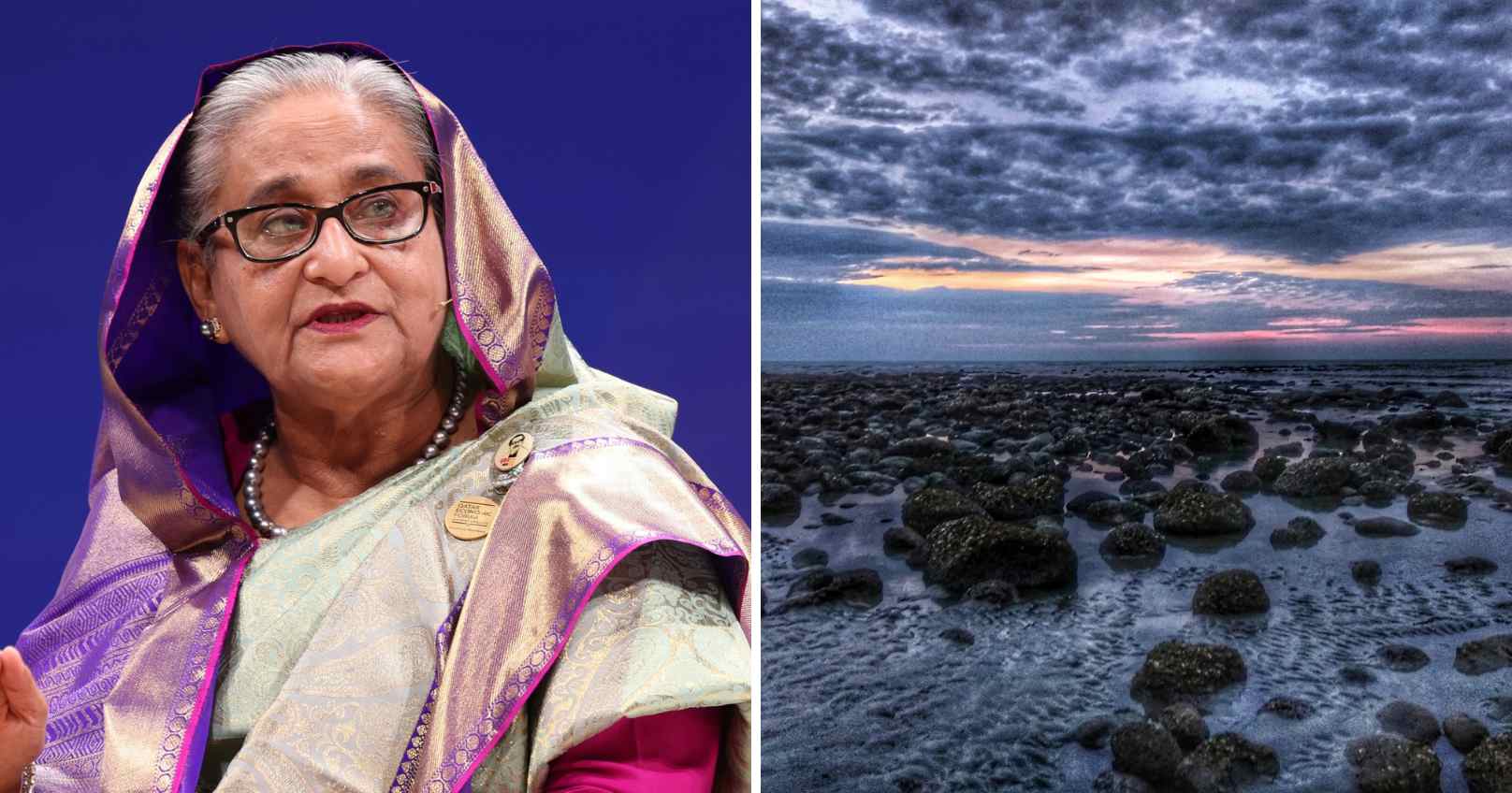Before resigning as Bangladesh's Prime Minister and seeking refuge in India, Sheikh Hasina intended to address the nation but was reportedly prevented by the military due to the escalating protests against her leadership. A copy of her undelivered speech, now obtained by India Today TV, reveals that Hasina suggested the United States may have played a role in her political downfall.
In the speech, Hasina hinted that her government might have survived if she had agreed to hand over St. Martin's Island to the US. This raises questions about the strategic importance of the island and the alleged American interest in it during the political unrest.
St. Martin's Island, a small coral island in the northeastern Bay of Bengal, lies close to the southern tip of Bangladesh’s Cox's Bazar-Teknaf peninsula, near Myanmar. The island, covering just three square kilometers, is home to about 3,700 residents who primarily engage in fishing, agriculture, and seaweed harvesting.
The island has been a point of contention in Bangladeshi politics, with allegations that the opposition Bangladesh Nationalist Party (BNP), led by former Prime Minister Khaleda Zia, once considered selling it to the US for a military base in exchange for election support. However, the US has consistently denied any such intentions, emphasizing its respect for Bangladesh’s sovereignty.
Historically, St. Martin's Island was part of the Teknaf peninsula until it became separated and turned into an independent landmass. The island has seen a series of ownership changes, from being part of British India to being claimed by Pakistan after the 1947 Partition, and finally becoming part of Bangladesh following the Liberation War in 1971.
Although Bangladesh and Myanmar reached an agreement in 1974 recognizing St. Martin's as part of Bangladesh, disputes over maritime boundaries have persisted. These disputes, particularly with the Myanmar navy, have sometimes led to tensions, especially as Bangladeshi fishermen frequently operate in the waters around the island.
In 2012, the International Tribunal for the Law of the Sea (ITLOS) ruled in favor of Bangladesh, affirming its sovereignty over St. Martin's Island and resolving some of the maritime boundary disputes.
The island’s strategic location has made it a focal point of geopolitical interest, with speculation that both the US and China have shown interest in establishing a presence in the Bay of Bengal region. Sheikh Hasina previously alleged that the US had sought to acquire St. Martin's Island for military purposes and that the BNP was willing to make such a deal in return for electoral support. She firmly rejected this notion, vowing not to compromise the country's sovereignty during her time in office.
The US has denied these claims, reiterating its commitment to supporting democracy in Bangladesh and respecting its territorial integrity. These allegations came amid unconfirmed reports of US concerns about Bangladesh's growing ties with China and the broader strategic competition in South Asia.
As the political situation in Bangladesh remains tense, the significance of St. Martin's Island continues to play a role in the country's geopolitical narrative, with Hasina's undelivered speech adding another layer to the ongoing discourse.







